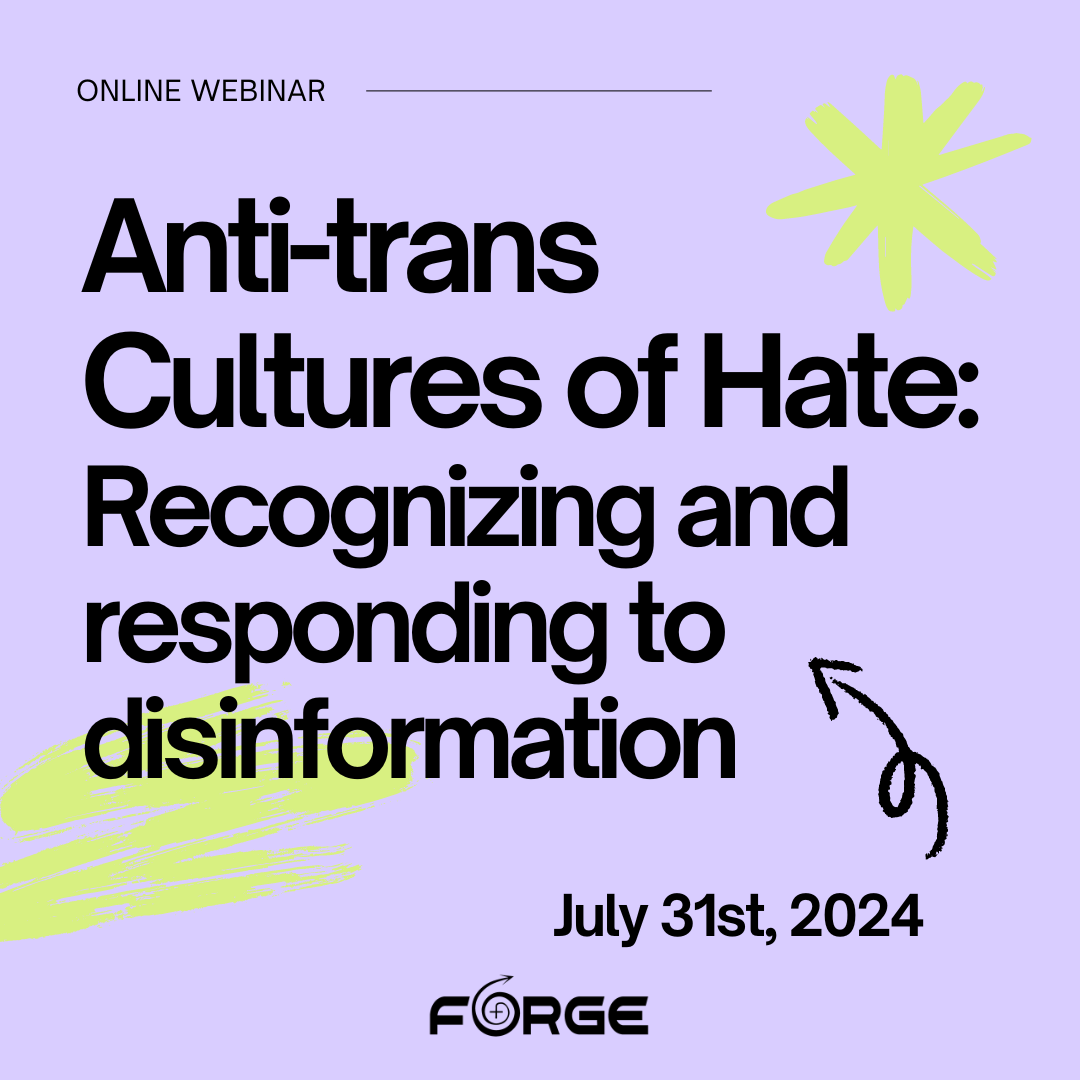Anti-trans Cultures of Hate: Recognizing and responding to disinformation

 Introductory
Introductory  Service Providers
Service Providers Trans Communities
Trans Communities The “culture wars” can be an elusive concept. We might hear it talked about in the news or on social media, but what does it mean, and how does it relate to trans people? In this training, content explores the “who/what/when/where/why” of anti-trans culture wars, and delves more deeply into understanding the tactics being used to perpetuate harm. A deeper discussion of the consequences and impacts supports participants in building a better understanding of media literacy and assessment strategies to determine if information is true or not. Attendees will leave with action steps on how to better support trans individuals, as well as how they can help shape and respond to anti-trans hate in the broader society.
Links and resources in this training
0:00 Welcome/agenda
0:58 Who is FORGE?
3:13 What do we mean by “culture wars”?
7:31 Who is driving the culture wars?
10:48 Discussion: What other communities are impacted by culture wars?
12:13 Why is this happening?
16:47 Video: Media literacy
19:02 Discussion: What areas of life are impacted?
20:30 Areas of state-sanctioned hate
23:12 Tracking anti-trans legislation
23:55 Project 2025
35:59 Culture war tactics
46:49 Consequences/impact
1:00:17 Coping strategies
1:05:04 Compounded impact
1:05:44 How do we counter misinformation?
1:11:03 Discussion: How can you determine if info is true or not?
1:11:56 Shifting from culture wars to culture love
1:17:42 Discussion: How can you/your agency shift the culture wars?
1:19:22 Resources
1:21:58 Connect with FORGE
Recorded July 31, 2024.
–
The Institute on Violence, Abuse and Trauma (IVAT) is approved by the American Psychological Association (APA) to sponsor continuing education for psychologists. Institute on Violence, Abuse, and Trauma (IVAT) maintains responsibility for this continuing education program and its content. The California Board of Behavioral Sciences (BBS) now accepts American Psychological Association (APA) continuing education credit for license renewal for LCSWs, LMFTs, LPCCs, and LEPs. Please contact your state board representative if you are not sure if the program will qualify under your regulations.
This project was supported by Grant No. 15PBJA-22-GG-04854-ADVA awarded by the Bureau of Justice Assistance. The Bureau of Justice Assistance is a component of the Department of Justice’s Office of Justice Programs, which also includes the Bureau of Justice Statistics, the National Institute of Justice, the Office of Juvenile Justice and Delinquency Prevention, the Office for Victims of Crime, and the SMART Office. Points of view or opinions in this document are those of the author and do not necessarily represent the official position or policies of the U.S. Department of Justice.
